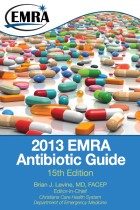Category: Internal Medicine
-
How to Fix Common Glucose Problems in Diabetics
Below is a list of common glucose problems, which commonly occur in diabetics, along with their solutions: Hyperglycemia Fasting – increase basal insulin Pre-lunch – increase breakfast rapid acting insulin or increase morning NPH (intermediate acting) Pre-dinner – increase lunchtime rapid acting insulin or increase morning NPH Hypoglycemia Fasting or nocturnal – decrease basal insulin at bedtime…
-
Hypermineralocorticoidism Explained
Introduction Aldosterone is the most important mineralocorticoid in the human body, although various other hormones, such as cortisol, display mineralocorticoid activity as well, namely they cause hypertension, hypokalemia, and chloride resistant metabolic alkalosis (urine chloride > 20). In addition, mineralocorticoids can also cause hypernatremia and hypervolemia. The triad of hypertension, and hypokalemia and chloride resistant metabolic alkalosis should…
-

How to Become a Superstar Diagnostician Within the Span of One Lifetime or Less
To become a great diagnostician, you need to excel in six different diagnostic modalities: (1) history-taking, (2) physical examination, (3) laboratory medicine, (4) medical imaging (including point-of-care ultrasonography), (5) electrocardiography, and (6) bedside diagnostic procedures. History-taking The two most important components of history-taking are knowing what to ask and how to ask questions. Prepare and perfect scripted questions for…
-

Book Review: Acing the Hepatology Questions on the GI Board Exam
Acing the Hepatology Questions on the GI Board Exam, the Ultimate Crunch-Time Resource by Brennan M.R. Spiegel (2012) is an excellent choice for anyone who is looking for a solid understanding of hepatic pathology, diagnostics and therapeutics. The book is vignette-driven and features most of the important and high-yield hepatic conditions including acetaminophen overdose, viral hepatitides, and dozens…
-

Book Review: 2013 EMRA Antibiotic Guide by Brian J. Levine MD
My overall favorable impression of the 2013 EMRA Antibiotic Guide is similar to that of the 2011 edition, about which I wrote: For almost any infectious disease, the text advises you about which antibiotic to use, along with the appropriate dose, route, frequency and duration. In addition, the text provides you with various alternatives and contingency antibiotic…